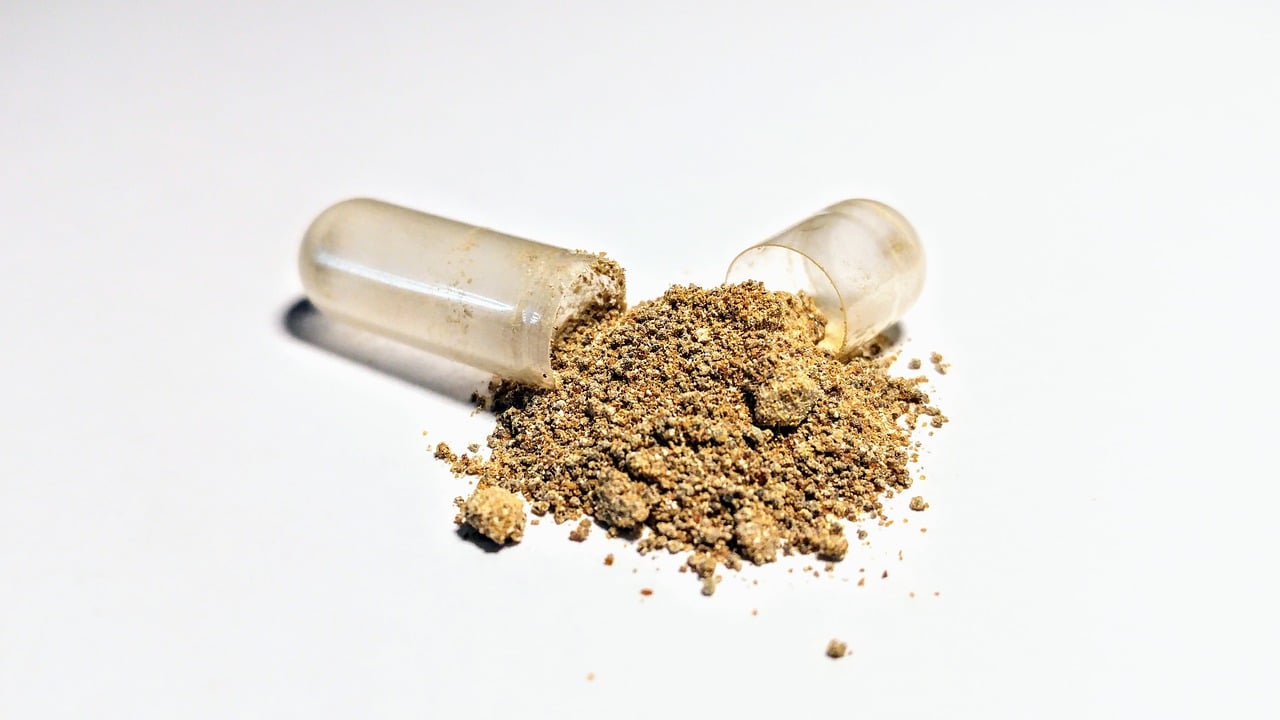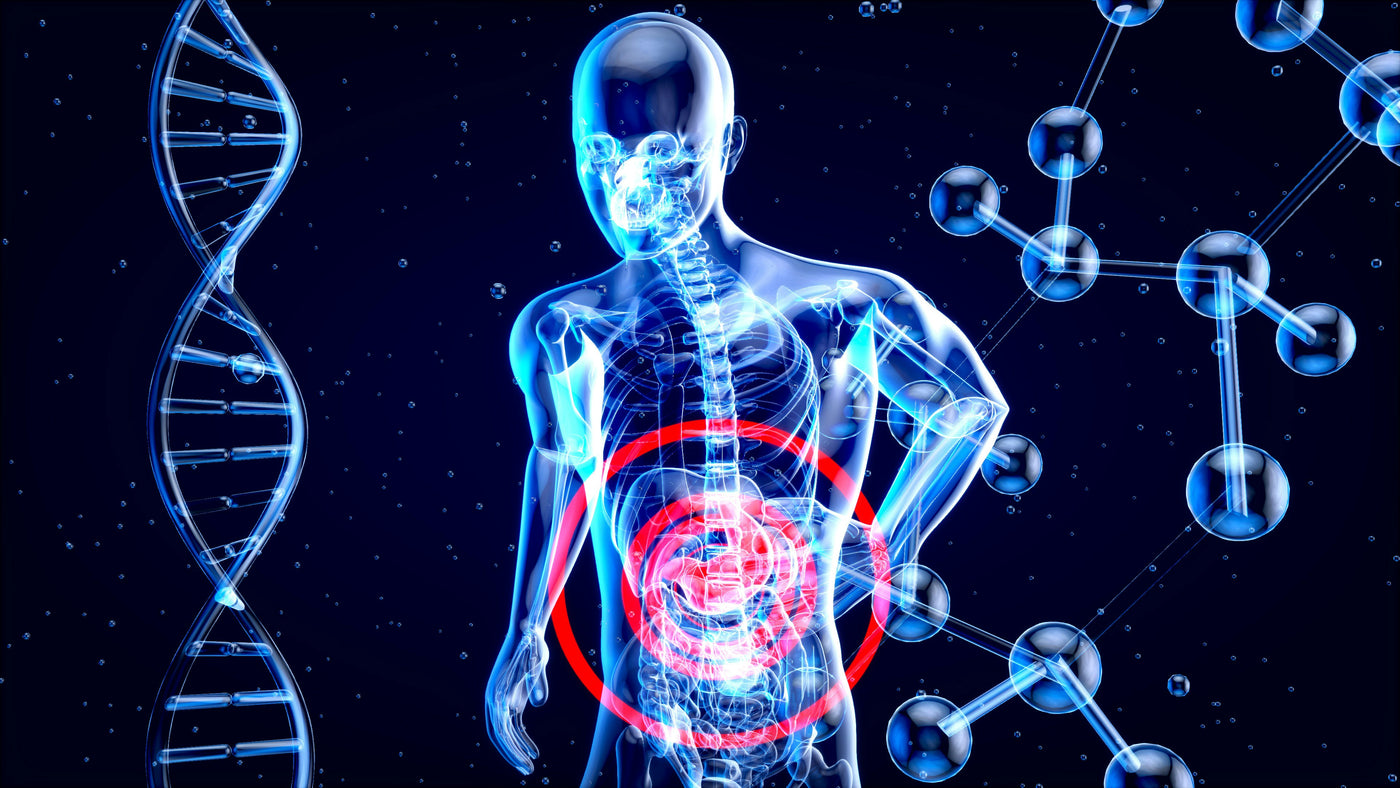Adopting a vegan diet is a compassionate and healthy choice. The benefits are abundant and include healthy weight maintenance, prevention of many diseases such as cancer, and stable blood sugar levels.[1]
A new vegan may get caught up in all of the benefits and begin to think of their new way of eating as flawless, however, the vegan diet takes careful planning to ensure all nutrient needs are being met, especially when it comes to vegan amino acids and proteins.
We are going to break down exactly why amino acids are so important to the vegan diet, and how to get enough to live a full and healthy vegan life.
Vegans Need Amino Acids to Create Protein
Protein is essential to a healthy life and amino acids are the building blocks of protein. This means when we eat foods rich in amino acids, they are converted into proteins. Ensuring your diet provides adequate amino acids for protein synthesis within the body can be a challenge, especially for vegans. While it is true that you can get all of your protein through plant-based sources, the likelihood of that happening without any planning is slim.
As a vegan, you need to have a plan. You need to know which plant foods contain protein, how much protein is in one serving, and where to find a dependable vegan amino acid supplement to fill nutritional amino acid and protein gaps.
What Are Amino Acids and How Do They Work?
Proteins are large molecules built within our bodies from amino acids. There are three main types of protein we have in our bodies.
- Fibrous proteins such as muscle fibers, connective tissues, and tendons
- Globular proteins like enzymes, immunoglobulins, and hormones
- Membrane proteins that function as transporters and gatekeepers, sending signals to other parts of the body
Humans require 20 different amino acids that work synergistically to create and maintain the three types of proteins listed above.
Your body can only produce 11 of these amino acids, leaving 9 that must be consumed through your diet. These 9 are called essential amino acids and can be found in various plant sources. You might ask, 'what amino acids do vegans need?'. There are nine essential amino acids that all humans need that vegans typically struggle to intake.
The Nine Essential Amino Acids
- Valine: plays important roles in muscle development and brain health
- Tryptophan: contributes to a healthy nervous system and mental relaxation
- Methionine: builds cartilage and muscles in addition to aiding the body in the absorption of zinc and selenium
- Leucine: helps keep blood sugars within a healthy range and has anti-depressant qualities
- Histidine: supports the immune system, auditory health, and regulates sleep cycles
- Isoleucine: is a crucial part of muscle metabolism and energy regulation
- Phenylalanine: important for brain and thyroid health
- Threonine: maintains a healthy liver, heart, and immune system; also contributes to the health of skin, hair, nails, and bone due to its relationship with collagen
- Lysine: supports calcium absorption and plays a role in fatty acid metabolism
How Much Protein Does a Vegan Need?
Calculating your protein needs is based on many factors, including your diet type.
While consuming plant foods, your body is digesting and absorbing many other nutrients such as carbohydrates, vitamins, and minerals, as well as separating all the nutrients from fiber. Fiber will not be absorbed, but rather will pass through the system taking some amino acids with it.
Due to this and other factors, the general recommendations for men and women who follow a vegan diet is to obtain 1-1.2 grams of protein per kilogram (kg) of body weight (you can find kilograms by dividing your weight in pounds by 2.2).[2]
To further break it down and calculate your amino acids we would take the same number of kilograms and multiply against each individual Recommended Daily Intake (RDI).
The RDI for Each Amino Acid is as Follows:
- Histidine: 14 mg/kg
- Isoleucine: 19 mg/kg
- Leucine: 42 mg/kg
- Lysine: 38 mg/kg
- Methionine plus cystine: 19 mg/kg
- Phenylalanine plus tyrosine: 33 mg/kg
- Threonine: 20 mg/kg
- Tryptophan: 5 mg/kg
- Valine: 24 mg/kg
Protein deficiency
How do vegans get protein? Vegans who are not careful to ensure a diet balanced with enough plant-sources of amino acids, or supplemented amino acids are at risk for protein deficiency. Protein deficiency occurs when a person is not consuming or absorbing adequate amounts of protein or amino acids through their diet. Most commonly, protein and amino acid deficiencies will lead to cognitive dysfunction, mood disorders, and limited tissue repair.
Methionine deficiency has been linked to poor tissue healing due to the role it plays in zinc absorption, which is required for optimal wound healing.[3] Lysine deficiency increases anxiety, fatigue, and can lead to muscle atrophy.[4] A deficiency in histidine may cause cognitive distress, namely depression, and can lead to hearing loss.[5]
Vegan Sources of Amino Acids
Unlike most animal products, plant-based proteins contain variable amounts of different amino acids. Because of this, vegans need to keep track of how much of each amino acid is being consumed. Rather than creating an excel sheet outlining exactly how many amino acids are in each food, the simplest way to go about this is to learn what amino acid is in which types of plant foods, and which ones are absent.
It can be challenging to find vegan foods that contain all amino acids to include in your diet. However, the general rule is that legumes will have adequate amounts of all amino acids except tryptophan and methionine.[2] Grains will be limited in isoleucine, lysine, and threonine, and nuts and seeds will be limited in isoleucine and threonine. It is important to consume a combination of these three types of foods throughout the day, although you do not need to balance them in each meal.
The table below will help you organize the essential amino acids by plant food source:
|
Plant Type: |
Limited Amino Acids |
|
Legumes: |
Tryptophan |
|
Grains: |
Isoleucine |
|
Nuts & Seeds: |
Isoleucine |
There are some plant-based foods that are relatively high in protein compared to others. It is wise to consume at least one of these high protein vegan foods at every meal. Some are considered complete proteins. A complete protein is one that has all 9 essential amino acids in adequate amounts for the body to absorb and use.
Good Sources of Protein for Vegans:
- Seitan: The plant protein with the highest amount of protein per serving is seitan. Boasting 31 grams of protein per 3 oz portion, it also contains 6x more amino acids than other grains.
- Quinoa: While quinoa only contains 8 grams of protein per 1 cup serving, it contains much higher amounts of most amino acids than other seeds.
- Spirulina: also known as blue-green algae, spirulina contains 4-8 grams of protein in only 2 tablespoons, making the perfect addition to smoothies. It is also a great source of iron.
- Hemp Seeds: Another food with high amounts of protein in a small package are hemp seeds. They contain 6 grams of protein in 2 tablespoons and are also very high in most amino acids.
- Tofu and Tempeh: tofu and tempeh are made from soybeans and can provide 10-15 grams protein in a half-cup serving. Both contain adequate amounts of all amino acids, therefore are considered a complete protein.
- Lentils: for a half-cup serving, lentils provide 9 grams of protein and provide adequate amounts of each amino acid except tryptophan.
- Pumpkin Seeds: contain 9 grams of protein for a quarter-cup serving. Pumpkin seeds appear to be the only seed with adequate levels of tryptophan.
Some people may rely on plant based amino acid supplements to fill the gaps in their vegan diet.
Benefits of Vegan Protein Supplements
There are times when a vegan is simply unable to get adequate amounts of amino acids, especially if they are allergic or have an aversion to soy or wheat products. If you are a vegan who heavily relies on beans and greens for nourishment, you would have to eat close to 4000 calories just to meet your protein needs.
The smart vegan understands that having a trustworthy supplement is crucial to maintaining a healthy plant-based diet. Some count on vegan protein powders, others on tablets, but the quality is not regulated with these products, so you may not be getting what you think you are.[6]
When choosing a supplement, look for a complete and synergistic supplement sourced from superior vegan ingredients. Healthycell's Vegan Essentials Microgel supplement includes amino acids such as L-carnitine, L-carnosine, L-creatine, L-lysine and L-taurine, as well as omega fatty acids, vitamins, and minerals. The absorption has been shown to be reliable due to the use of the specialized MICROGEL™ technology.[7]
Too Much of a Good Thing
When using Healthycell's Vegan Essentials Microgel supplement you may not need to worry about over-supplementation. Many other supplements on the market contain toxic levels of amino acids that can be dangerous to your health.[8]
As mentioned before, when consumed through vegan food sources, not all amino acids will be absorbed due to other substances being digested at the same time. But with supplementation, it is easy to flood the digestive system with ridiculous amounts of amino acids. Consuming >500% of what you're supposed to be taking in can lead to serious health risks.
High-dose supplementation can damage your health.[8] Certain amino acids are more toxic than others, such as histidine, cystine, and methionine.
Toxic levels of histidine lead to painful eyes and changes in visual acuity, mental confusion, poor memory, and weakness.[9] Methionine over-supplementation can lead to severe vomiting, liver dysfunction, and in some cases even cardiovascular disease. Insomnia, dissociation, and severe fatigue are common side effects of receiving a heavy influx of cystine.
It is crucial for vegans to find an essential amino acid supplement to assist in helping them meet their amino acid and vitamin needs without fear of toxicity.
Don't Forget About Vitamin B12
Amino acids are not the only concern for people who follow a vegan diet. Vitamin B12 is only found in animal products. Luckily some food manufacturers have found ways to fortify plant-based foods with B12 such as nutritional yeast. Vitamin B12 supplements are often relied upon, and Healthycell's Vegan Essentials Microgel supplement is a complete amino acid supplement that provides a high-quality source. Regardless of how one chooses to supplement, it is crucial that vegans should get their vitamin B12 levels measured annually.
Conclusion
Although it can be challenging for you to obtain an adequate amount of amino acids in your vegan diet, it is not impossible. By consuming a variety of plant foods with amino acid and protein content, in addition to having a quality vegan amino acid supplement, you can rest assured that you are getting adequate nutrition. Don't forget to check out other Healthycell daily multivitamins for a healthier lifestyle.
To your health,
Vincent Giampapa MD
Cristen Lindsay, Registered Dietitian, Certified Nutritionist



